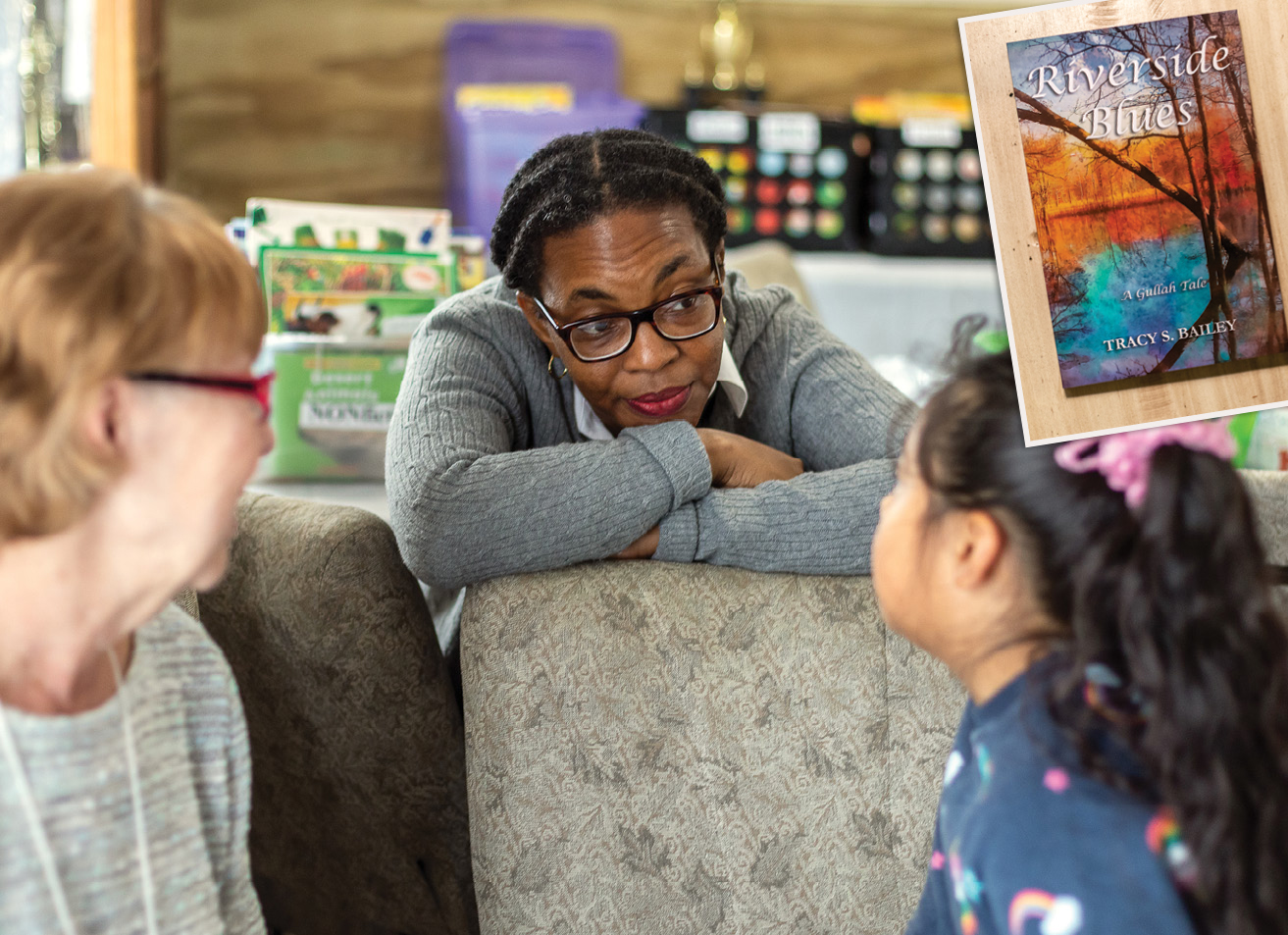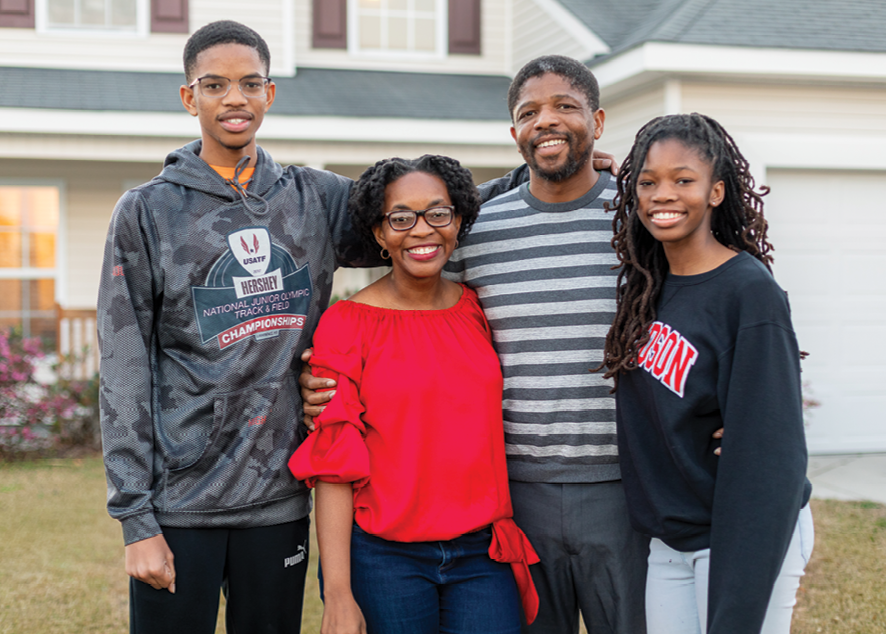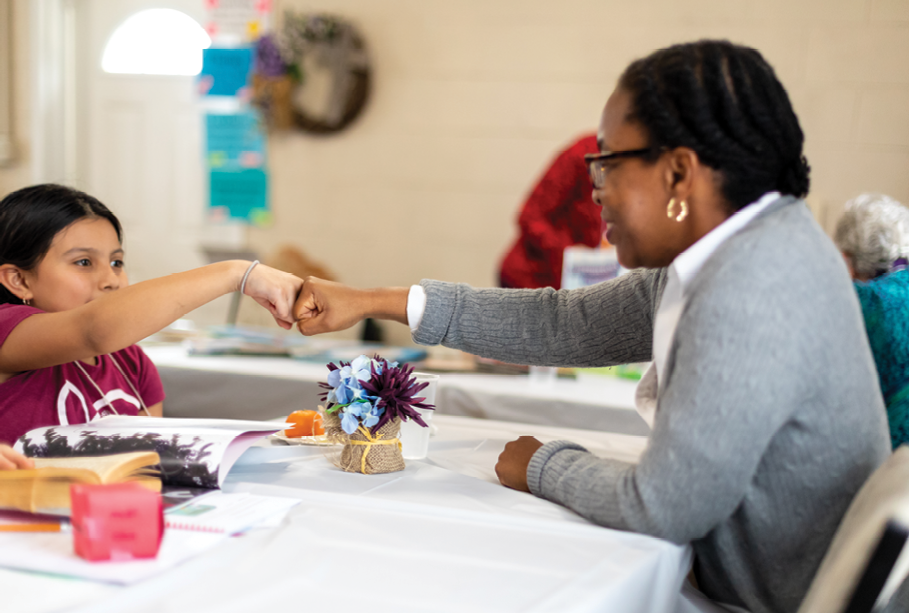Dr. Tracy Bailey’s Freedom Readers is helping to bring the joy back to reading, one book at a time

It all started because of a conversation about reading. And it was the conversation itself that wasn’t working for children who struggled with reading.
Dr. Tracy Bailey’s Freedom Readers was initiated after she taught English at Socastee High School, followed by her work as an educational consultant, where she aided mostly inner city teachers across the United States in professional development.
“They were all trying to figure out how to get kids engaged and motivated,” says Bailey. “I’ve seen a lot of situations where reading instruction is more of a conversation about reading and not enough of the actual readings from reading. And I’ve seen a lot of children struggle and it’s really not seen as the joy it’s supposed to be a lot of times in schools.”

During her time at Socastee High, Bailey says they brought in an international baccalaureate program and she addressed at a faculty meeting that this program, which they were spending multiple thousands of dollars on, was only for the best and the brightest kids at the school.
“Where is the kind of program like this for the kids who are struggling,” she says, “like don’t they deserve the same opportunities? Because I do think that it’s worth it to develop potential and there’s so much untapped potential out there. So that’s what I wanted this program to be.”
That’s what sparked the foundation of Freedom Readers in 2010: “to inspire today’s youth one book at a time.” Their one-on-one literacy tutoring began with two sites in Conway serving 20 children in each and has grown today to 20 sites throughout Horry, Georgetown and Williamsburg counties for more than 250 children in kindergarten through fifth grade.
“Now that we work inside the schools, the guidance counselor or the principal will give us a list of the children that they think would benefit the most from our program,” says Bailey.
Freedom Readers runs three sessions a year—spring, summer and fall—and each is centered on a different theme. Bailey operates as the CEO, with a full-time director of programs and director of operations, three part-time outreach coordinators assigned geographically, team leaders at each site and a crew of volunteers.
“We all work to make sure the kids don’t get bored,” says Bailey. “And so that there’s a connection with the reading. You know, we kind of want to make it cohesive for the kids because the research tells us that if you have something to hang your new learning on or if it’s all connected in some way, then you’ll absorb it better.”
The theme for the current session is “What do inventors do?” and incorporates a STEM-style scholar program along with the Academy for the Arts, Science and Technology. The prior session’s theme in fall 2019 was poets, in which students read different poems each week and actually wrote perfectly constructed 14-line sonnets.

“One of my goals in the next couple of years is to be able to take some of that writing and create either an anthology or have some of the children write their own books and publish them,” says Bailey. “And then we’ll have a book festival where people can come and buy their books.”
Bailey, who just published her own novel, Riverside Blues, has always had a penchant for reading and writing. Born and raised in Georgetown, S.C., she earned a bachelor’s degree in English Education from the College of Charleston, a master’s in secondary education from Coastal Carolina University and a Ph.D. in Education, with a focus on Language and Literacy, from the University of South Carolina in May 2013.
She met her husband, award-winning journalist Issac Bailey, while attending the Governor’s School of South Carolina at the College of Charleston as juniors in high school.
“To be at that school was like an opportunity of a lifetime,” says Bailey. “I realized then I was the only student to be there from my school, and it was really very eye-opening. I think I realized that there were so many more kids who just did not have the opportunities that could have been in the place where I was if they just had a little bit more support.
“When Issac and I got around to being a couple,” she continues, “we always talked about how if we ever got the chance, we would offer to the community something life-changing like that was for us … to be kids from little dirt road communities in South Carolina and end up there with 250 of the brightest kids in the state.”
Bailey says she also instituted a reading routine for her children early on. Kyle is now a senior at St. James High School and Lyric, a sophomore.
“When they were in elementary school, I would pick them up from school every day, and when we’d come home, the first 20 minutes that we got out of the car was always reading time,” she says. “I would set the timer on the microwave and we would all grab a book. I would say, ‘OK, time to go read and Lyric would say, ‘Read, again? We just did that yesterday!’ And their reading scores are off the charts. … I mean, I really have to struggle with them now to get them to read, but I know that I planted that seed when they were little ones praying they will circle back around.”

What Bailey doesn’t want to stand by and idly watch is the statistic she shares that two-thirds of kids who are not reading on grade level by the end of the third grade are going to wind up behind bars or on welfare.
“These are things that we don’t want to happen. And when they do happen, we’re up in arms, we’re upset,” says Bailey. “But this is an opportunity for us to get involved on the prevention side. We can sit with the child once a week and tell them a story about themselves that says you are going to be a winner. And I think it’s almost revolutionary. What we’re trying to do is invite the business community, retired people, people who care about kids when they’re young enough to be inspired and motivated to show them that there are people here who care about them.
“We hope at Freedom Readers that one day soon we’ll build out a program for the parents of these children that we’re working with so that they will understand that we know how hard it is to create an environment, even at home, that’s conducive to high academic achievement,” she continues. “We want to offer them different opportunities to talk about things like getting enough sleep, good nutrition, what trauma can do to the brain. Just by having these conversations, we can start expanding on the type of environment we try to create when we get together with the kids once a week.”
Also in the works for the future is the expansion of Freedom Readers’ advanced placement prep program into the Bucksport community for middle schoolers, which is currently running in Georgetown.
For more information on Freedom Readers and to donate or volunteer, visit freedomreaders.org.